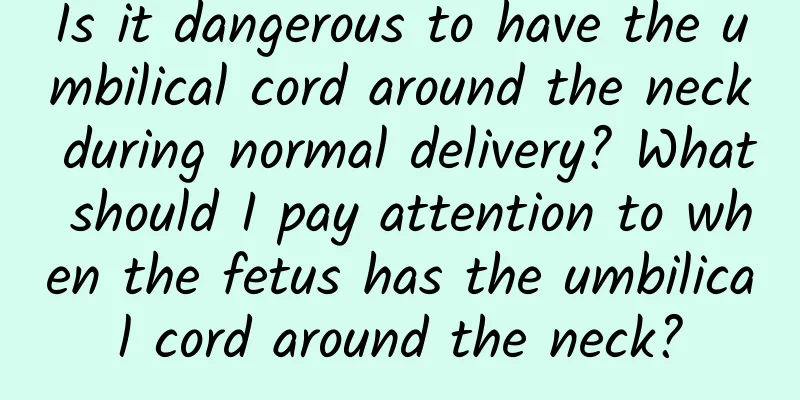What is the reason for repeated leakage?

|
Lochia refers to the discharge that flows out of the vagina after childbirth. Generally speaking, lochia will be discharged in about three weeks after delivery. If lochia recurs for a long time and has not been discharged, it is probably because the body is too tired, the body is weak, too early or too much tonic, uterine infection, residual pregnancy tissue, cesarean section, etc. These reasons can cause lochia to recur repeatedly. 1. Excessive physical fatigue Usually, for mothers after giving birth, the lochia can be discharged in about 3 weeks or 21 days. For some mothers, it can be as short as 2 weeks, and for some mothers it can be as long as 6 weeks. The specific time varies from person to person. During the breastfeeding period, due to the need to take care of the baby and other reasons, the body becomes too tired, which causes a sudden increase in the amount of lochia. In this case, you must rest well, pay attention to observe your physical condition, and seek medical attention in time if there is any abnormality. 2. Weak body Some women may have a poor physical condition at ordinary times, and they are unable to rest and recuperate properly after giving birth, or the delivery time is too long, which causes further damage to their Qi and blood, resulting in weak uterine contractions and recurring lochia. 3. Take supplements too early or in large quantities If a mother takes a lot of tonic food right after giving birth, or blindly replenishes her body during the confinement period, it can easily cause lochia to be difficult to discharge completely, and may even cause delayed postpartum hemorrhage. In this way, blood clots accumulate in the uterus, which may induce diseases such as endometritis and sepsis. 4. Uterine cavity infection Due to improper postpartum cleaning or premature sexual intercourse, uterine infection may occur, resulting in persistent lochia. In addition, incomplete disinfection during surgical injury may also cause uterine infection. In this case, lochia will be accompanied by obvious odor, abdominal pain, fever and other symptoms. 5. Residual pregnancy tissue For example, due to improper delivery operation or uterine fibroids, the pregnancy tissue is not thoroughly cleaned up, resulting in residual tissue in the uterine cavity, which in turn causes recurring lochia. At the same time, the amount of bleeding may be more or less, and there will be obvious abdominal cramps. 6. Cesarean section In addition to infection and postpartum rest, prolonged lochia discharge is also affected by natural birth or cesarean section, breastfeeding, etc. Usually, women who have undergone cesarean section, have a short breastfeeding period or do not breastfeed are more likely to have prolonged lochia discharge. |
<<: How long after abortion can you eat fruit?
>>: Is it harmful to catch a cold after abortion?
Recommend
What is the cause of uterine prolapse and frequent urination?
The incidence rate of uterine prolapse is relativ...
This disease is so painful that it has become a hot topic. Should we get the vaccine that costs thousands of yuan?
recently A pain is a warning sign of shingles Bec...
How to beautify and fight aging?
As they age, women's bodies will also age, bu...
Introduction to treatment of endometriosis
The most terrifying thing for women is the occurr...
What causes nipple pain during pregnancy
Pregnancy is a very special period. Any slight ch...
Is it a big deal if the fetus has few movements? Why does the baby have few movements?
We all know that the baby will often move in the ...
What is the normal body temperature for women?
Women's menstrual period is quite special. Ma...
New ultrasonic vibration-assisted nano-lubrication technology breaks through the bottleneck of micro-grinding in orthopedic surgery - Scientists have developed a "smart knife sharpener" that reduces thermal damage to bones
In orthopedic surgery, precise bone grinding is a...
How to remove crow's feet on the face?
I believe that crow's feet on the face are a ...
How long does it take to recover after hysterectomy?
After a hysterectomy, women need to do a good job...
What is ovarian tumor marker testing?
Ovarian tumors are common gynecological tumors in...
What to eat during confinement
Every female friend has to stay in confinement fo...
Is there a health risk to soaking your feet in hot water? These 4 types of people should be careful!
Soaking your feet in hot water before going to be...
What should I say to my mistress when my marriage ends? What should I do if my friend doesn't know that I'm a mistress?
In this society, mistresses are like rats crossin...









